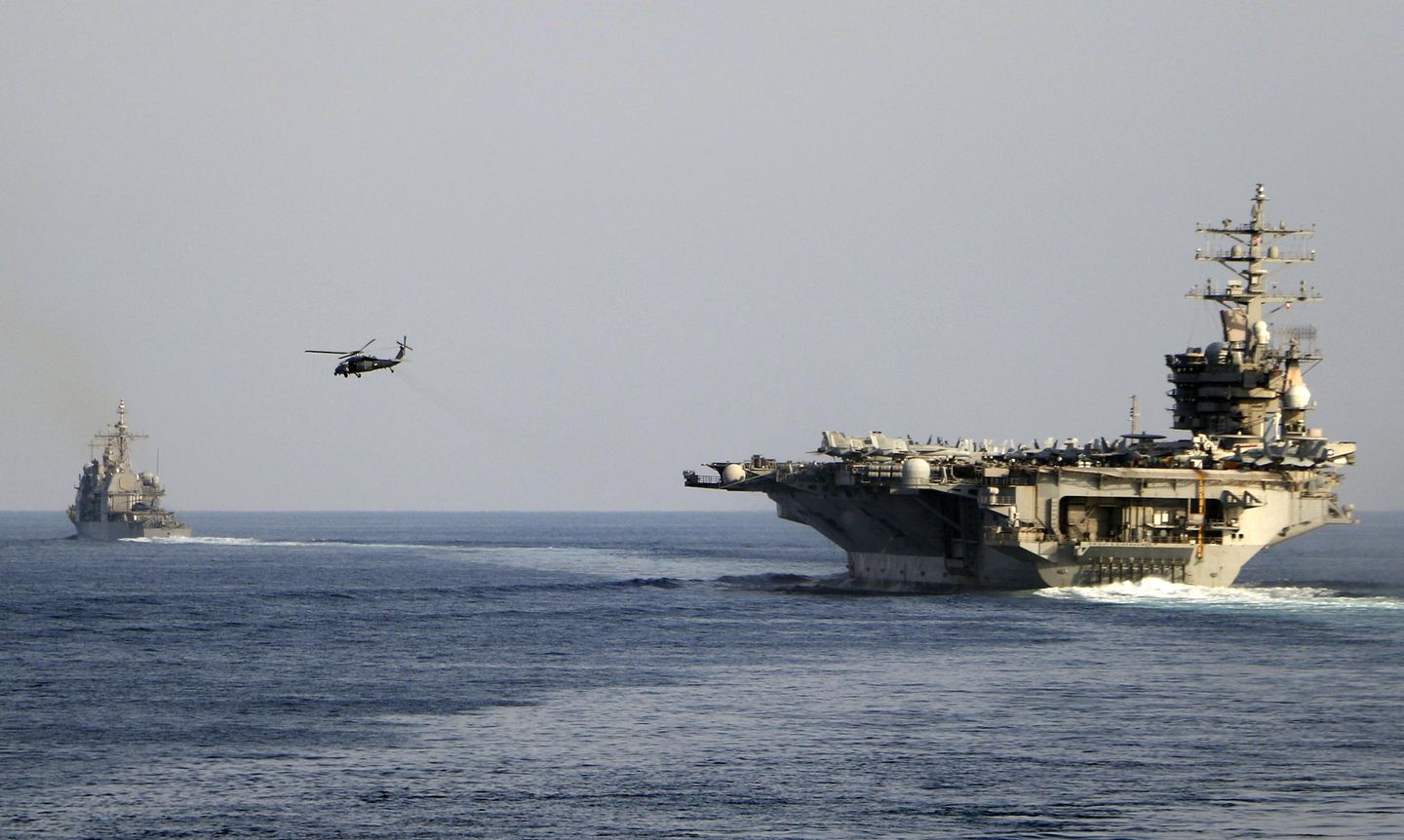
China condemned the U.S. bombing of Iran’s nuclear facilities again Monday and plans United Nations diplomatic action together with Russia to further oppose the American strike and the Israel–Iran war, China’s Foreign Ministry said.
The Chinese government is facing a potential shutoff of vital oil shipments if Iran, a key Beijing ally, follows through with a threat to close the strategic Hormuz.
An estimated 45% of China’s oil passes through the strait on tankers and a halt would further weaken China’s struggling economy, according to analysts.
Chinese Foreign Ministry spokesman Guo Jiankun told reporters in Beijing on Monday that the Chinese Communist Party Central Committee and Foreign Ministry discussed the recent U.S. bomb strike and ordered more than 3,000 Chinese nationals to be evacuated from Iran.
Mr. Guo declined to comment when asked if China had discussed the possible closure of the Strait of Hormuz with Iranian officials.
The Iranian parliament announced earlier that the strait would be closed in response to the U.S. bombing raid, but the lawmakers don’t have the final say on closing the waterway.
The strait is a strategic chokepoint located between the Persian Gulf and the Gulf of Oman. In 2024 the waterway saw an average daily flow of about 20 million barrels of oil a day, or about 20% of global petroleum consumption.
“The Persian Gulf and nearby waters are important routes for international trade in goods and energy,” Mr. Guo said. “Keeping the region safe and stable serves the common interests of the international community.”
China has called on the international community to increase efforts to de-escalate the conflict and to prevent the war from slowing the global economy, he said.
On Sunday, Fu Cong, the Chinese ambassador to the United Nations, said Iran was harmed by the airstrikes, but U.S. credibility and its standing as a global power were also damaged, state media reported.
The bombing of the three Iranian nuclear facilities involved B-2 bombers that took off from Missouri armed with 30,000-pound penetrating bombs and submarine-launched Tomahawk cruise missiles fired from near the Indian Ocean.
Bomb damage to the three sites is still being analyzed, but the Pentagon is confident it has successfully destroyed large portions of Iran’s uranium enrichment program and the equipment the regime uses to produce it.
Mr. Guo, the Foreign Ministry spokesman, said the U.S. attacks violated the U.N. Charter and increased Middle East tensions.
“The Security Council cannot stand idly by. China, Russia and Pakistan proposed a draft resolution to the U.N. Security Council calling for an immediate and unconditional ceasefire, protection of civilians, respect for international law, and engagement in dialogue and negotiation,” he said.
The U.N. measure could be voted on in the next few days. A U.S. veto is likely.
China’s initial response to Israeli airstrikes against Iran was muted, without any harsh condemnation of the Israeli action. The U.S. strike, however, was quickly denounced, highlighting Beijing’s view of the United States as its chief geostrategic rival.
Retired Navy Capt. Carl O. Schuster, a China expert and former intelligence official, said he believes China is providing components for Iran’s damaged air defense systems and ballistic missiles and also supplying some intelligence support to Tehran.
The continuing support from Beijing could include targeting data on U.S. bases in the region.
Regional news reports said two Chinese intelligence-gathering ships were spotted near Iran’s coast.
“A full closure of the Strait of Hormuz would have a significant impact on China’s economy,” Capt. Schuster said, adding that Beijing will try to leverage its support to prevent a closure of Chinese shipping.
China likely will urge Iran to implement a board, inspect and seize or release procedure that would limit the departure of liquid petroleum products and liquefied natural gas carriers destined for countries friendly to Iran like China, North Korea, Pakistan and others, he said.
Selective passage of shipping through the strait would support an Iranian goal of driving European Union member countries, Japan and South Korea, which are heavily reliant on Persian Gulf oil, to pressure the United States and Israel into a ceasefire.
A closure of the Strait of Hormuz also would affect India, Japan and South Korea, which rely heavily on Gulf oil shipments.
Gen. Mike Kurilla, commander of the U.S. Central Command, stated in Senate testimony earlier this month that more than 85% of all illicit Iranian oil exports in 2024 went to China, and amounted to about 10% of all Chinese oil imports.








